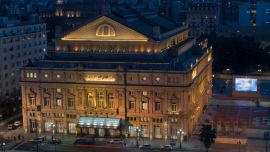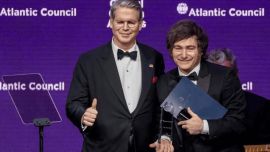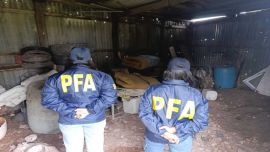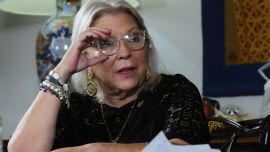After the election of leftist leaders in Argentina, Mexico, Chile and now Colombia, and with Brazil's Luiz Inácio Lula da Silva seemingly on track to return to office, a new political wave is sweeping Latin America, where economic woes have been exacerbated by the pandemic.
For Colombia, the leftwards swing last weekend was unprecedented: Gustavo Petro, 62, became the country's first ever left-wing president.
Elected with 50.44 percent of the vote, he promised to invest in healthcare and education, increase taxes on the wealthiest and suspend oil exploration, giving pride of place to renewable energy sources.
The rise of Petro is "a reflection of people's frustration with the traditional political class and ... people's concern that democracy is not responding to people's most basic needs," Jason Marczak, director of the Atlantic Council's Adrienne Arsht Latin America Center, told AFP.
These concerns have been "magnified because of Covid and because of the implications of the Ukraine war, specially the high prices of food, energy and inflation," he said.
For Oliver Stuenkel, professor of International Relations at Brazil's Getúlio Vargas Foundation, Latin American voters are following a global trend of rejecting the establishment and favouring outsiders.
The economic crisis is more conducive "to speeches promising state intervention to combat inequality, which gives an advantage to the left," he said.
A 'different left'
The left-leaning wave will be almost complete if Lula, the poll favourite in Brazil, manages to secure a third term in October against far-right incumbent Jair Bolsonaro.
Before coming to power for the first time in Colombia, the left had already made a comeback in Argentina, Bolivia, Chile, Peru and Mexico, all with quite different profiles – but generally far from the radical wing in power for so long in Cuba, Venezuela or Nicaragua.
"It's a different left to the one that settled in Latin America after the victories of Hugo Chávez in Venezuela (1998), Lula in Brazil (2002), Ricardo Lagos (1999) then Michelle Bachelet (2006) in Chile and the Kirchners (2003) in Argentina," said Rodrigo Espinoza, a political analyst at the Universidad Diego Portales in Santiago.
The current left "has its eyes turned more towards the future, aiming not only to overcome the [current] crisis, but also to preserve the environment", he said, referring especially to Petro and Boric, who have made tackling global warming a priority.
Lula has also gone green. While his campaign puts a lot of emphasis on his social programmes that lifted 30 million Brazilians out of poverty during his first two terms (2003-2010), it also focuses on defending the Indigenous peoples of the Amazon, with strong criticism Bolsonaro's environmental policy.
Less favourable conditions
Gender and racial equality as well as LGBT+ rights are also increasingly popular issues with the left across the region, even if leaders like Peru's Pedro Castillo or Nicaragua's Daniel Ortega remain more conservative on these subjects.
Some leaders of the Latin American left are also trying to distance themselves from authoritarian regimes such as Cuba, Nicaragua and Venezuela.
"Venezuela will always be a burden for the left in the region and some leaders have distanced themselves from the [Nicolás] Maduro government in their campaigns," said Espinoza.
Despite some differences, a victory for Lula, as he is popularly known, in October would "restore regional dialogue which is currently non-existent," especially between the presidents of the two major South American countries, Fernández of Argentina and Bolsonar of Brazil, said Stuenkel.
But he noted that the economic situation is far less favourable than it was in the 2000s when "the boom in raw materials made it possible to increase public spending."
The Economic Commission for Latin America and the Caribbean (ECLAC) expects growth of 1.8 percent for the region in 2022, as well as an increase in poverty, particularly in Mexico, Colombia and Brazil.
related news
by Eugenia Logiuratto, AFP






















Comments